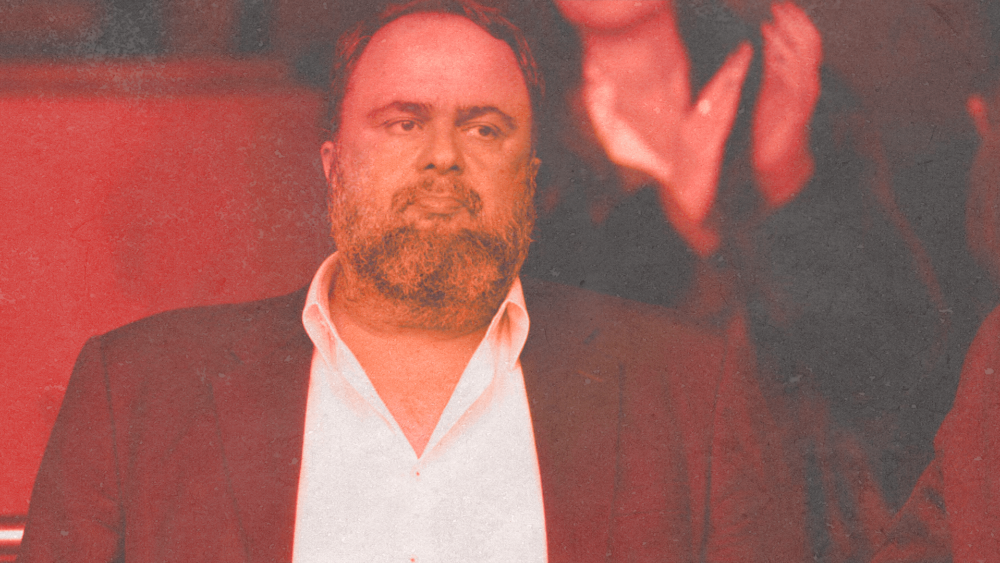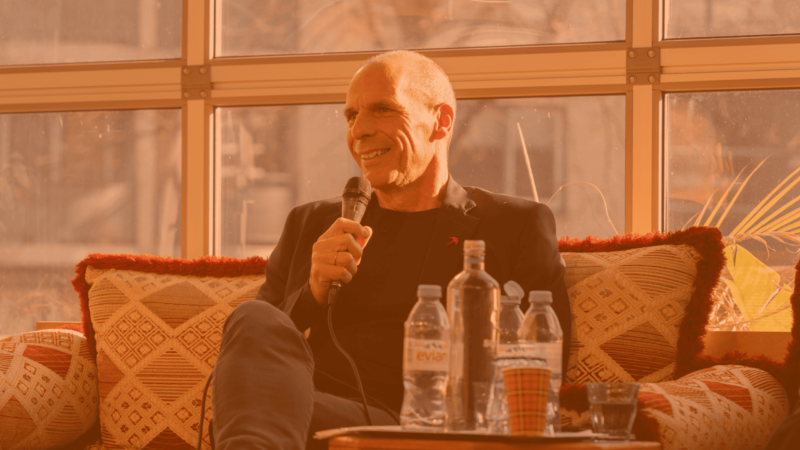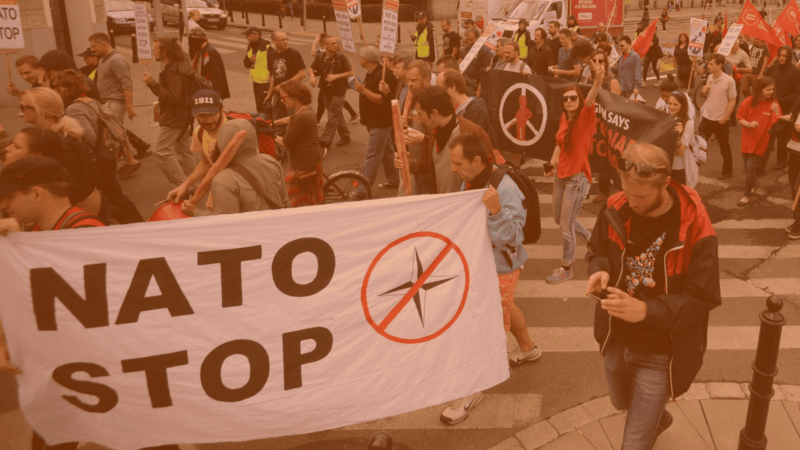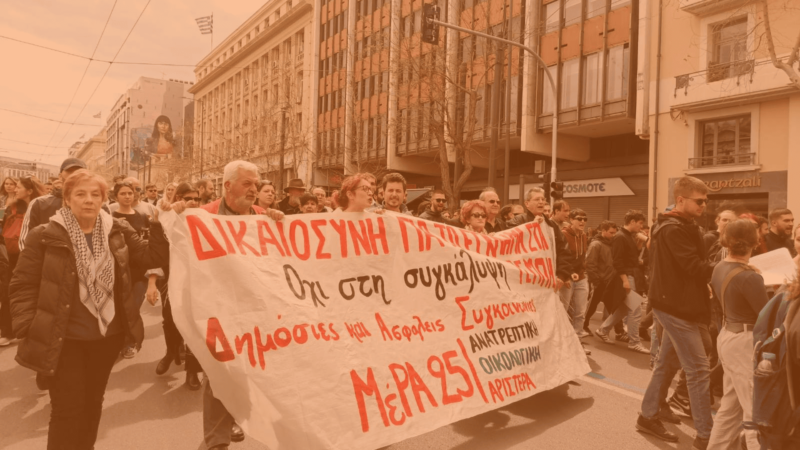The owners of the top four clubs have established a web of power and control, leveraging their sporting stature to garner commercial or political benefits. In this part, we look at Evangelos Marinakis, the owner of Greece’s most successful football club, Olympiacos
Greek football is like a microcosm of the wider political landscape, as shady businessmen slug it out for a seat at the top of the table, each publicly expressing their innocence in the face of serious accusations while behind the scenes strategizing through their vast network of influence their next attempt to outdo their opponents.
Mini-empires have been created by the main players of the Greek Super League, with fundamental mechanisms to uphold their power: prosperous yet questionable business practices, owning media to control narratives, and political connections to avoid legal ramifications. Owning popular football clubs is the cherry on top, to desensitise the general public from their misdemeanours.
When examining the major players, the plot becomes more reminiscent of an over-the-top Netflix criminal drama series than a mediocre European football league.
Evangelos Marinakis (Olympiacos), Ivan Savvidis (PAOK), Giannis Alafouzos (Panathinaikos) and Dimitris Melissanidis (AEK) have all managed to combine their business or political aspirations with their sporting ventures.
Evangelos Marinakis
If there is one person who best typifies the interwoven web of dodgy business, media control and political power, it is Evangelos Marinakis, the owner of Greece’s most successful football club, Olympiacos.
Following in the footsteps of his father Miltiadis who was a shipowner in his day, Marinakis set up Capital Maritime & Trading Corp, through which he has amassed a fleet of nearly 100 vessels with a value of around 9 billion euros in his hometown port of Piraeus.
An avid supporter of Olympiacos, much like his father who was part of its management, Marinakis became the club’s president in 2011, winning seven consecutive Greek league titles, before another three in a row from 2020 to 2022.
Yet his tenure in the game has not been without controversy and suspicion. In 2015, Marinakis was banned from football as an investigation rolled on over allegations that he played a prominent of a criminal organisation that had the aim of “absolute control of Greek football’s fate by the methods of blackmailing and fraud”.
Arrested at the same time was Hellenic Football Federation president Giorgos Sarris, and it was alleged that he, Marinakis and other federation officials were responsible for directing this ‘criminal organisation’ since 2011. It just so happened to be that Marinakis was president of the Greek Super League and vice president of the Hellenic Football Federation during that period.
Suspicions over criminal activity have been a common theme for the shipping magnate but, like any prominent businessman, running into some problems from time to time is inevitable. Marinakis is as shrewd as they come, so close contacts with key political figures would prove fundamental and, at times, mutually beneficial.
Marinakis and Mitsotakis – a complicated marriage
Marinakis has been a close friend of the Mitsotakis family for several decades. Back in 1998, he was the best man at the wedding of the current Greek prime minister Kyriakos Mitsotakis’ sister, Dora Bakoyannis, the former mayor of Athens and mother of its current mayor.
The close connection between the shipping tycoon and Mitsotakis would prove to be a particularly beneficial relationship for both parties over the years.
Marinakis made his first major move in politics in 2014, when he was elected first member of the Piraeus City Council member, running on the Piraeus Winning Ticket which he co-founded with current Piraeus mayor Yannis Moralis, the vice-president of Olympiacos.
But there was a political storm brewing against the shipping magnate. The same month as his city council election, far-left SYRIZA claimed first place in the European elections ahead of New Democracy, before securing a shock victory in the 2015 general elections.
Tsipras pressure strengthens Marinakis–Mitsotakis alliance ahead of 2019 elections
The Tsipras-led government vowed to crack down on Greece’s oligarchs if it won the election. Sensing hostility coming his way, he confided in his old pal Mitsotakis and his open-for-business New Democracy.
Of all the criminal allegations against Marinakis across his career, the one that has most stubbornly pursued him is the ‘Noor 1’ case – a massive heroin operation in which he was accused trafficking two tonnes of the drug among a series of other crimes.
He furiously denied the allegations and felt it was a SYRIZA-led plot to take him down. “Members of the governing coalition have persistently targeted me,” he stated.
This subject had been among the most talked-about scandals in Greece since the investigation began in 2014, before media coverage suddenly dried up in the run-up to the 2019 elections.
Marinakis can often be seen performing the sign of the cross from the stands of the Georgios Karaiskakis stadium when watching his beloved Olympiacos but, in this case, rather than divine intervention, it was a very deliberate one that swayed things in his favour.
Marinakis’ media empire
In 2017, Marinakis bought out the media group Dimosiografikos Organismos Lampraki (Journalistic Organisation of Lampraki) through his own company, Alter Ego, which made him the owner of daily newspaper Ta Nea, Sunday newspaper To Vima and news website in.gr, before later becoming the top shareholder of TV channel MEGA. Pro-government media also virtually ceased to cover the matter.
This began to raise major alarm bells leading up to the 2019 elections. When a journalist pressed Mitsotakis over the extent of their connection, and whether it hindered appropriate scrutiny over Noor 1, he did his utmost to deny it.
“I have no personal relationship with Mr. Marinakis,” he repeatedly stuttered in response.
However, Mitsotakis was left red-faced three months later by none other than his sister Dora who, in parliament, responded rather differently. She corrected the assertion that she was merely ‘friends’ with Marinakis, going a step or two further by saying that “he is my best man since 1996” and that she had christened his son.
Mitsotakis won the elections in 2019 thanks, in no small part, to his alliance with Marinakis. Yet, far from the happy marriage that seemed on the cards, it has been anything but. At least in public.
Marinakis–Mitsotakis fallout: Rupture or saving face?
In November 2022, a report released by Documento revealed that Mitsotakis had “used state intelligence to spy on dozens of people including potential political rivals, journalists and businessmen” which included Marinakis.
Later that week, the spat between the two reached boiling point as Olympiacos looked to be heading to victory against bitter rivals Panathinaikos, only for a harsh penalty to be called against Marinakis’ side in the dying moments which resulted in the game ending in a 1-1 draw.
“It is clear that Greek football is being run by a fascist regime governed by illegality and organised crime,” Olympiacos CEO Yannis Vrentzos said at the end of the game, with no hint of irony despite the similar allegations against the club under Marinakis’ rule.
“It is logical when in the last three years an illegal regime has been operating within the government […] headed by Grigoris Dimitriadis (Mitsotakis’ nephew who has since stepped down) and other clandestine and illegal elements,” he added.
“Our tolerance today is coming to an end. My proposal is for Olympiacos to withdraw from the Greek league and at the same time to appeal to the Greek courts where the extent of corruption in Greek football will be highlighted.”
While the decision was indeed harsh, and the allegations against Mitsotakis arguable, the fact that these accusations came from Olympiacos of all clubs was peak irony. And the suggestion of “corruption in Greek football” was borderline self-sabotage given that the Greek Super League president since 2022 is once again… Evangelos Marinakis.
The comments were so paradoxical that they even made Mitsotakis sound rational:
“I heard this too, about a “criminal organisation” […] for the last three years being against Olympiacos,” said the prime minister. “I am an Olympiacos fan, personally [but] Olympiacos won three championships with, if I’m not mistaken, 26, 19 and 18 points difference from second place, in the last three years. Where exactly was this criminal organisation back then?”
Mitsotakis went further with a thinly veiled dig, or warning, towards Marinakis.
“Some people have confused their roles here. Some feel that because they may own a team or control some media, or possibly both, they feel that they can blackmail, dictate to the government, undermine – by changing opinions from one day to the next – the course of the country,” said the prime minister.
Given the extent to which Mitsotakis and Marinakis were perceived to be in cahoots over the years, the jury is out as to whether the prime minister is just trying to distance himself from Marinakis for optics while the bond resumes behind closed doors, or whether the once rosy relationship has really soured. Either way, Marinakis’ business continues as normal, and he has been acquitted of charges for the Greek match-fixing scandal and has not been charged for any role in Noor 1.
Do you want to be informed of DiEM25's actions? Sign up here















